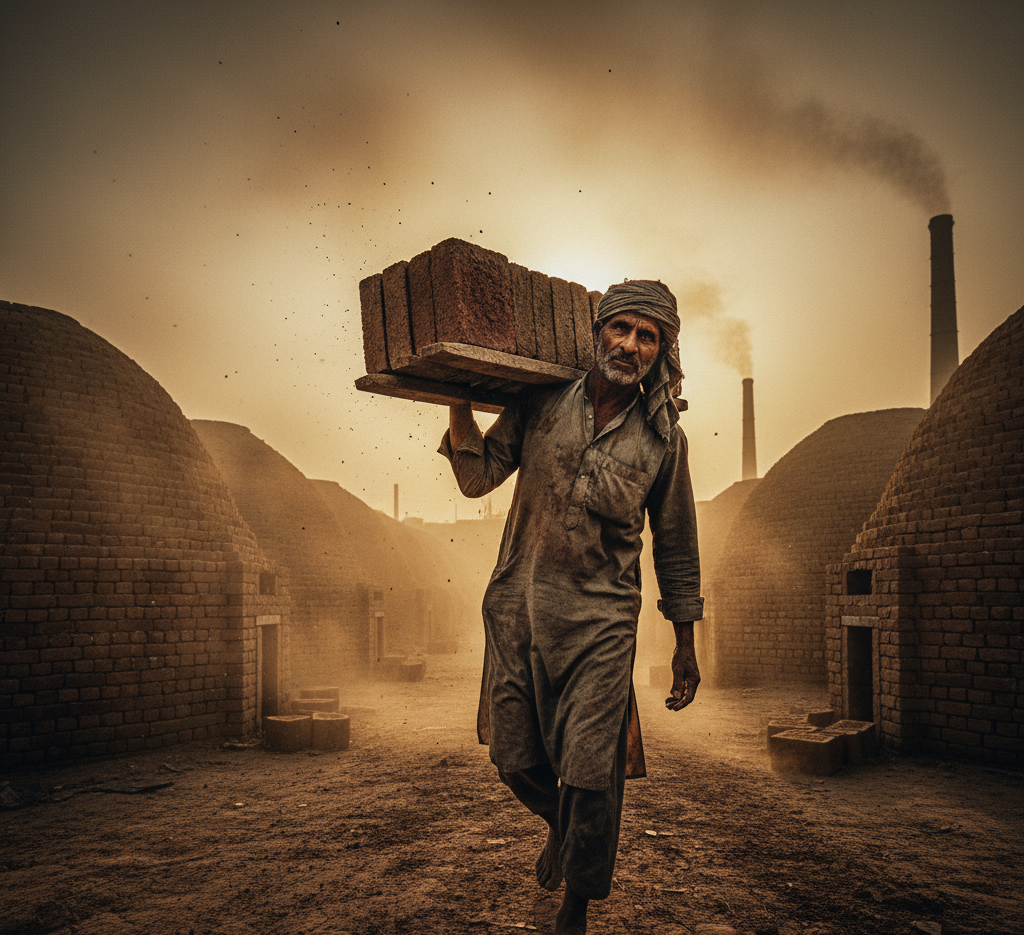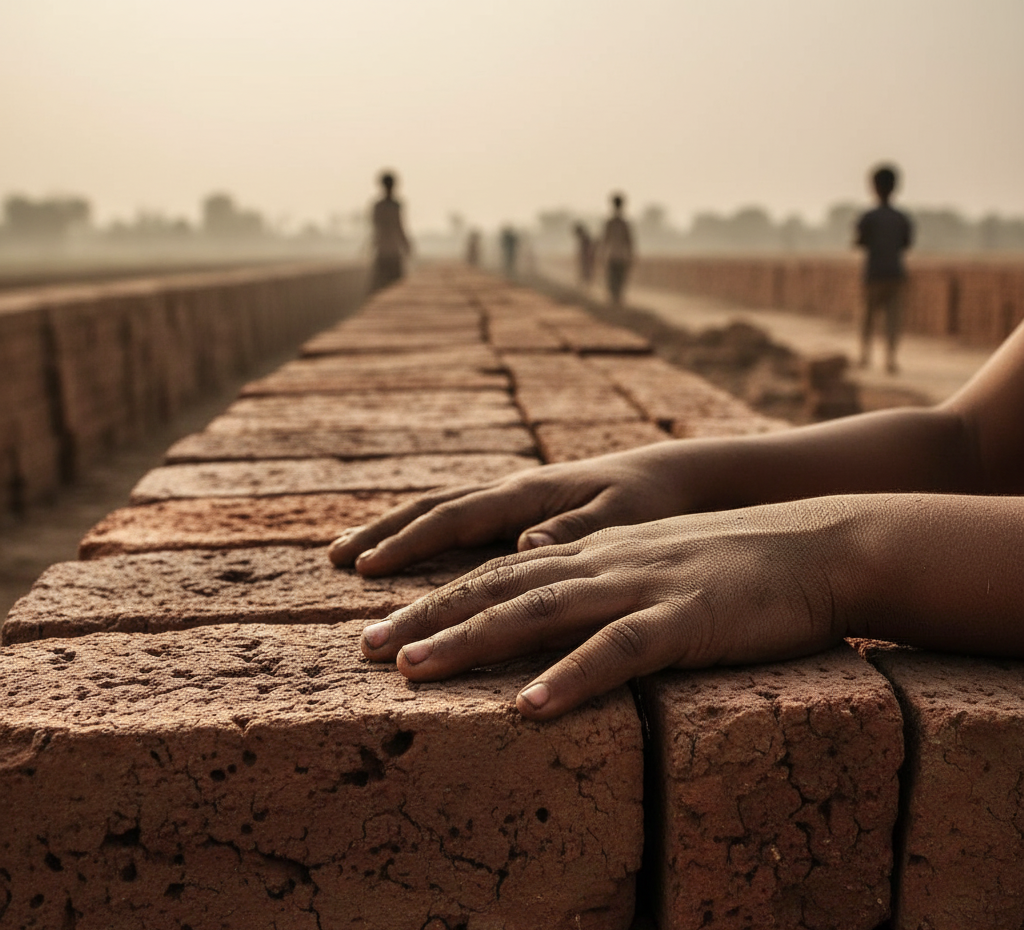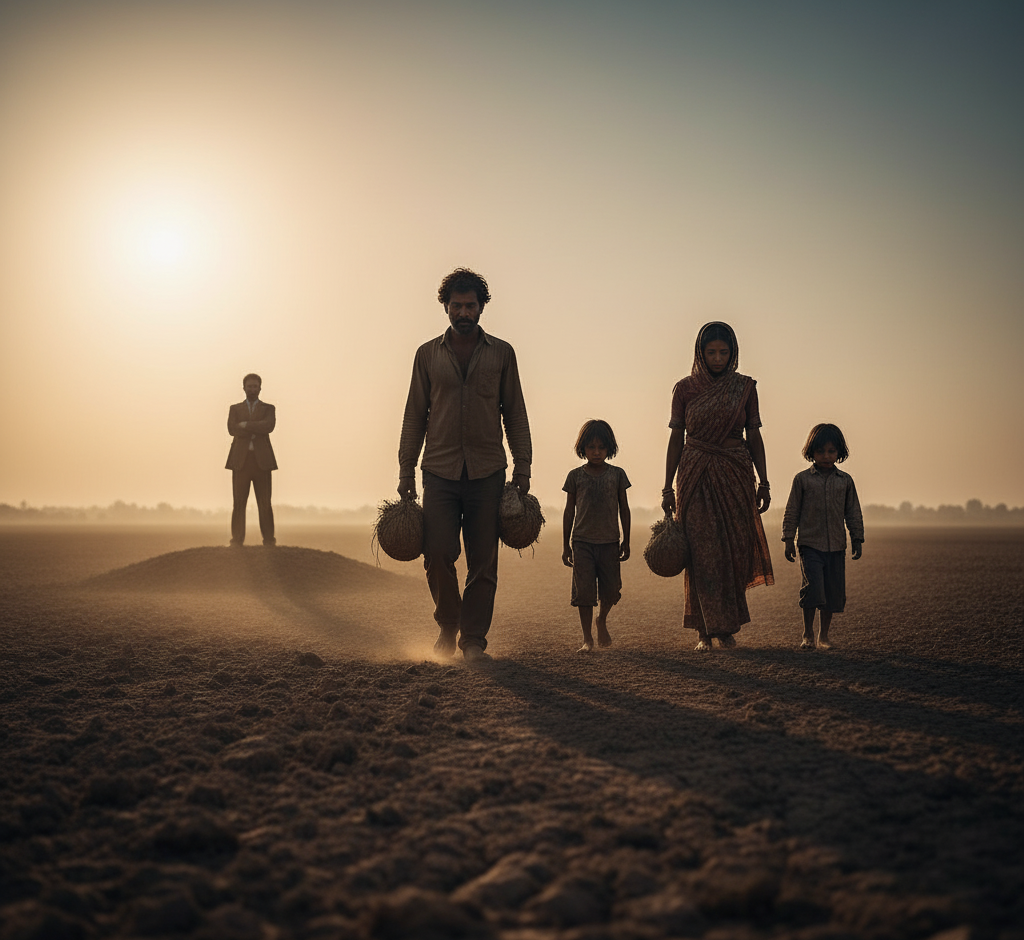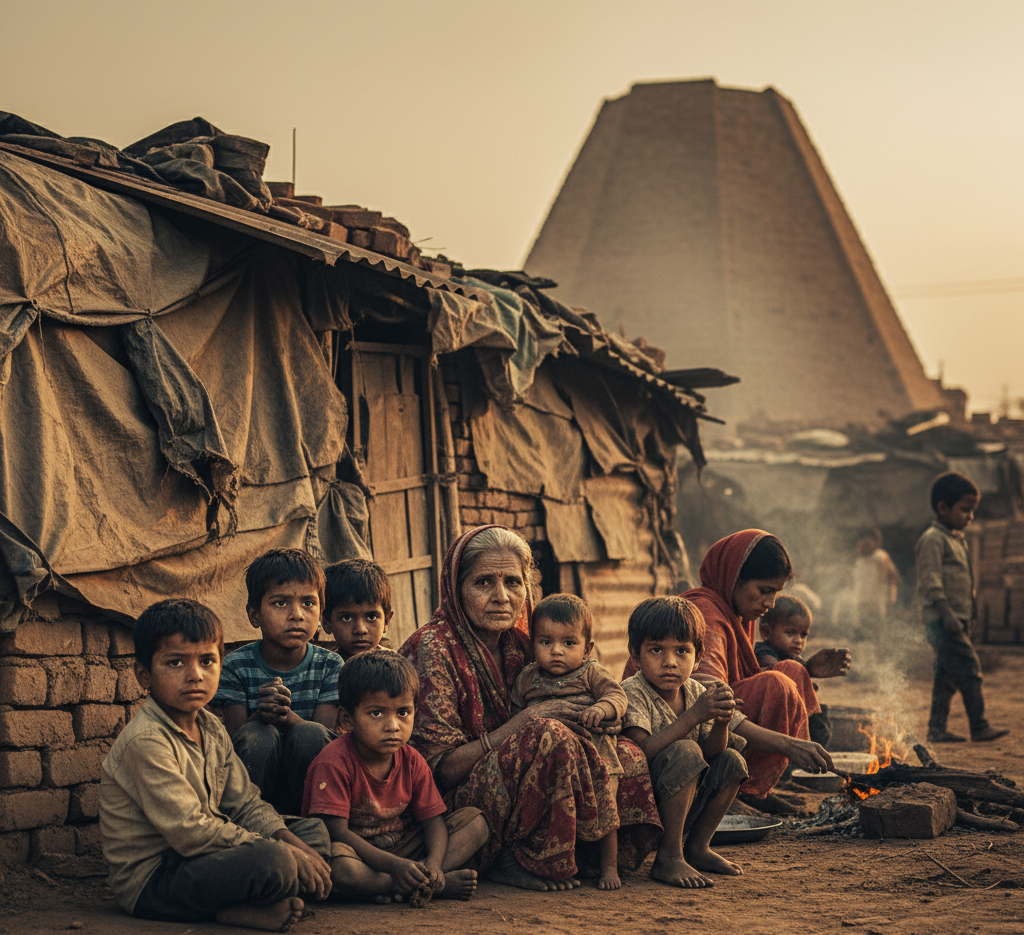According to the Global Slavery Index, almost 45.8 million people are trapped in bonded labor across the world. Pakistan is home to more than 3 million of them, based on data from 2018. Now the figure has reached up to 4 million, which means more slaves have grown in past years.
What starts off as a small loan ends up trapping generations into bonded labor. A small loan taken out by a laborer for a hospital bill or a small wedding soon spirals out of reach. The landlord finds every excuse to trap the workers. They are threatened in every manner possible to prevent them from running away or asking for help.
Bonded labor can be called a kind of modern slavery. Moreover, it involves a special type of forced labor that only exists in agricultural societies and Asian countries; it is also widespread in Pakistan. According to the International Labor Organization (ILO), forced labor includes any kind of services or work which involves someone involuntarily. The most common factor of those enslaved is bonded labor or “Debt Bondage.” Besides, it does not only involve just an individual but the debt gets passed on from generation to generation.

The Reality of Exploitation
These laborers are not only subjected to physical violence but also to sexual exploitation and mental torture. According to the 2014 Global Slavery Index, 2,058,200 people were enslaved in Pakistan, and in 2018, that number rose to around 3,186,000.
The Bonded Labor Abolition Act of 1992 was introduced with the affirmed purpose of abolishing this feudal system. Yet, the major problem in our country is that we have created laws for everything, but did not strategize how to implement them. This ultimately leads to poor implementation.
Many of the bonded laborers are going through societal problems. They do not have their legal documents, and without these documents, most of them are unable to send their children to school or avail basic facilities.

The Feudal System and Its Grip
It is well recognized that Pakistani society is dominated by big landowners and tribal leaders. The society is organized around family, kinship, caste, and tribe dominated by feudal lords and tribal heads. Democratic norms and values have always been weak, giving way to autocratic, authoritarian, and paternalistic norms. As a result, no political force was powerful enough to change the power base of these landlords.
The influence of these landlords extends from the local to the national levels of administration. It is through such control that they maintain their patronage system that does not act as a mitigating tool to free bonded laborers; instead, it further strengthens bondage. Also, it is due to their power and influence at the local and national levels of governance that no government in Pakistan has ever given priority to eliminating bonded labor.
People are trapped in debt bondage as a consequence of their inability to repay loans or cash advances. Due to abject poverty, such advances serve laborers and their families’ immediate needs, but they become the cause of their slavery in the long run. A combination of factors such as high interest charged on cash advances, low wages offered to laborers, and forged entries in account books weakens laborers and strengthens bondage.

The Plight of Women and Children
The families that are involved in brick kiln labor are completely dependent on their owners. The indebtedness occurs through the Peshgi (advance) system under which the laborers borrow from the owner to fulfill their family’s consumption requirements. The loans, which are provided to these laborers, act as traps as they persist across generations. Since the repayment period in many cases lasts for several generations, the families virtually become prisoners and need special permission from kiln owners to leave the premises even for a short period. The situation of women and children in bondage is more vulnerable.
Women are an integral part of the labor force in the brick-kiln industry. They not only work for the same hours and days as men, they do the household work as well. Also, they do not have the provision of maternity leave and are expected to work during their pregnancy. On occasions of illness or even a death in the family, they are forced to work. A system of prostitution dens also runs at some of the kilns. Rape and other forms of physical abuse of women have also been reported.
Children make up a significant part of the brick kiln work force as well. It is noted that around 60% of the children who start work with their families at the kiln are below the age of 13. These children are usually the siblings of their parents or are grandchildren of a person who was the original debtor. They are denied the freedom to move out of the kiln premises, and the mortality rate amongst them is very high.
The Human Rights Commission of Pakistan reports a high mortality rate among children working at brick kilns. Blindness is common in child laborers working under the obligation of debt bondage of their adults, and about one out of twenty families have blind children. They are kept as hostages when their parents leave the kiln premises. With regard to children in the brick kiln industry, the study on working children in the brick kilns of Pakistan notes that the children witness the cruel treatment of their parents by the owners. Children grow up in an atmosphere of fear, insecurity, and subjugation, which has a long-lasting effect on their personality development.
Interviews with parents and observation of children provide evidence of malnutrition, skin diseases due to contact with clay, dust, and exposure to intense heat, as well as respiratory infections. Another study showed that child workers in the brick industry suffered 50 percent more chronic chest infections than their counterparts in neighboring villages.

The Tragedy of Shahzad and Shama Masih
Pakistani Christian couple Shahzad and Shama Masih were burned alive by a mob. Accused of desecrating the Muslim holy book, they were then beaten and burned to death in a Punjab village. Blasphemy is a highly sensitive issue, and critics argue the laws are often misused to settle personal scores and that minorities are unfairly targeted. A security official told that local police had tried to save the couple, but they were outnumbered and attacked by the angry crowd.
The Way Forward: A Call for Change
Present Need
- Debts need to be paid
- Released but homeless families need a place to stay
- Released families need business or jobs to start a new life
- Children need schooling
Things that may change the future of Bonded Laborers countrywide
- Awareness & Counseling
- Education (Schooling for children)
- Independent Jobs
- Legal Aid (If needed in case)
What can be done to prevent slavery in future?
- Schools can be established to educate the bonded children or children’s schooling can be sponsored in their areas
- Debts can be paid to release the families
- Released families can be given a small amount to start their own business
